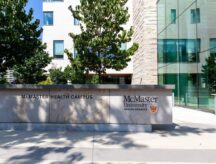OPINION: Immigration can help address Canada’s healthcare crisis – and Canadians agree, according to new survey
Health care is the top concern for Canadians, according to a recent study by CIC News. This is not surprising, as 6.5 million Canadians don’t have a family doctor, and healthcare wait times reached record levels in 2024.
Join the Angus Reid Forum and get $5 in points!
The lack of access to care can be directly linked to a shortage of medical professionals. In Ontario alone, there were 2,600 vacant physician positions in January of 2025.
Most Canadians call for an increase in foreign-trained medical professionals to reduce wait times, according to research by CIC News.
It’s time that Canada get serious about removing the barriers to licensing faced by foreign-trained medical professionals, and using immigration to tap into foreign-trained medical talent.
Barriers to licensing
Even with years of experience, foreign-trained medical professionals face serious challenges in becoming licensed to practice their professions in Canada.
For example, to become licensed for independent practice as a physician in Ontario you must complete “one year of postgraduate training or active medical practice” in Canada or “a full clinical clerkship at an accredited Canadian medical school,” and must be a Canadian citizen or permanent resident.
It’s extremely difficult for foreign-trained doctors to obtain the residency spots they need in order to become licensed, as the vast majority of residency spots are reserved for graduates of Canadian medical schools.
In 2024, 2,936 of 3,086 Canadian medical school graduates obtained residency, a placement rate of 95%. For foreign trained physicians, the placement rate was only 42%, with 671 of the 1,602 applicants having received placements.
Furthermore, obtaining Canadian permanent residency often takes months or even years.
In Ontario and elsewhere across Canada, we are welcoming skilled medical professionals such as physicians with years of experience overseas and not providing them the opportunity needed to become licensed to legally practice their professions.
Improving access to care
There is broad support among residents of Canada for addressing the shortage of healthcare workers by welcoming more foreign-trained medical professionals.
According to research conducted by CIC News among members of the Angus Reid Forum,
- 61% of respondents would prefer that we increase the number of foreign-trained doctors to reduce wait times; and
- 79% of respondents believe that foreign-trained doctors can provide the same quality of care as doctors trained in Canada.
Clearly, there is widespread support to make it easier for foreign-trained physicians to become licensed to practice medicine in Canadian jurisdictions.
We can start by increasing residency spots, along with creating alternative pathways for experienced foreign medical professionals to become licensed, without needing to undergo the same residency process as fresh medical school graduates.
In the case of Ontario, we should remove the requirement that physicians be Canadian citizens or permanent residents and should allow foreign nationals on work permits to become licensed to practice medicine.
Managing the demographic shift
Canada’s population is aging. An aging population means increased demand for healthcare services, combined with fewer workers, reduced tax revenue, and more retirees drawing on government-funded programs.
Immigration helps make our population proportionally younger and can provide additional and much-needed front-line healthcare workers.
With a well-managed immigration system, we can continue to grow Canada’s population at a sustainable pace and counteract the socioeconomic threat to prosperity that is posed by our impending massive demographic shift.
Join the Angus Reid Forum and get $5 in points!
About the survey
These findings are from a survey conducted by CIC News from February 3, 2025 to February 5, 2025 among a representative sample of 1502 online Canadians who are members of the Angus Reid Forum. The survey was conducted in English and French. For comparison purposes only, a probability sample of this size would carry a margin of error of +/-2.53 percentage points, 19 times out of 20.
- Do you need Canadian immigration assistance? Contact the Contact Cohen Immigration Law firm by completing our form
- Send us your feedback or your non-legal assistance questions by emailing us at media@canadavisa.com






